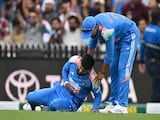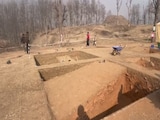Heat stroke is a serious medical condition that occurs when your body overheats due to prolonged exposure to high temperatures, often made worse by not drinking enough water.
Yesterday, bollywood superstar Shah Rukh Khan was admitted to a hospital in Ahmedabad after suffering a heat stroke. The actor was in the city to watch the Indian Premier League (IPL) match between his team, Kolkata Knight Riders, and Sunrisers Hyderabad. He is now recovering and has been advised to rest.
As per the Mayo Clinic, heat strokes can occur if your body temperature rises to 104 degrees F (40 degrees C) or higher. It is most common in the summer and needs to be treated immediately. If left untreated, these can quickly damage your brain, heart, kidneys and muscles.
Common causes include being in hot weather for too long, not drinking enough fluids, and doing intense physical activities in the heat. Signs of heat stroke include – confusion, agitation, nausea, red and hot skin, fast breathing, a rapid heartbeat and a severe headache.
Heat stroke: 5 tips to protect yourself
1. Staying hydrated helps your body maintain a normal temperature. Drink lots of water throughout the day, even if you don't feel thirsty, to avoid dehydration.
2. Choose light and loose clothing to help your body cool down. Tight or heavy clothes can trap heat and prevent your body from cooling properly.
3. Sunburns can make it harder for your body to cool itself. Wear wide-brimmed hats and sunglasses when outside. Use sunscreen with at least SPF 50, and apply it generously. Reapply every two hours, especially if you are swimming or sweating.
4. Never leave children, pets or anyone else in a parked car, even if it is for a short while. The temperature inside a parked car can rise rapidly, becoming extremely dangerous. Make sure you lock your car to prevent children from getting inside when it is parked.
5. It takes several weeks for one's body to get used to hot weather. Limit your time working or exercising in the heat until you are acclimated. If you are not used to the heat or have a health condition or take medication that increases your risk, avoid the heat and watch for symptoms of overheating. Avoid peak sun hours and make sure medical help is available during strenuous activities in hot weather.















